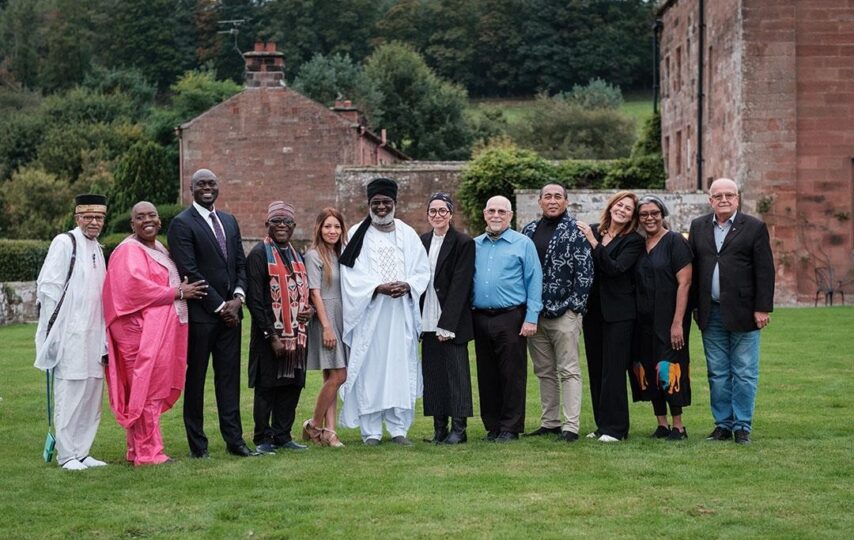In 2024, social media remains a powerful tool for communication and community building. However, it also serves as a breeding ground for hate speech, misinformation, and antisemitism. The rise of antisemitic rhetoric online is alarming, with Jewish communities increasingly targeted by harmful narratives, conspiracies, and incitements to violence. The global reach of these platforms amplifies the spread of disinformation and intolerance, creating a pressing need for effective strategies to combat hate and foster understanding.
The Tanenbaum Center for Interreligious Understanding is at the forefront of this battle, working tirelessly to counter antisemitism through education, advocacy, and the promotion of interfaith dialogue. By engaging with social media platforms, community leaders, and policymakers, Tanenbaum is setting an example of how organizations can lead in the fight against online hate.
The State of Antisemitism on Social Media
Antisemitism has taken on new forms in the digital age. Platforms like Twitter (now X), Facebook, Instagram, and TikTok are rife with content that perpetuates harmful stereotypes about Jewish people. Some common manifestations include:
- Conspiracy Theories: Narratives linking Jews to global control, financial manipulation, or societal collapse continue to proliferate online.
- Hate Speech: Direct attacks and slurs targeting Jewish individuals and communities are widespread, often masquerading as political discourse.
- Holocaust Denial: Despite widespread historical evidence, Holocaust denial remains a significant issue, with content attempting to minimize or distort facts.
This pervasive antisemitism not only harms Jewish communities but also erodes the social fabric by normalizing hate. Addressing this issue requires a concerted effort to promote tolerance and hold social media platforms accountable for the content they host.
Tanenbaum’s Approach to Combating Online Antisemitism
Tanenbaum’s work in fighting antisemitism extends beyond traditional advocacy. Its approach is holistic, focusing on education, policy advocacy, and community engagement to tackle the root causes of hate.
1. Educational Initiatives
Tanenbaum emphasizes the importance of education in dismantling antisemitic myths and stereotypes. Through its training programs and workshops, the organization equips individuals and institutions with the tools to recognize and challenge antisemitism.
- Social Media Literacy: Tanenbaum’s resources include guides on how to identify antisemitic content online and report it effectively. By fostering digital literacy, Tanenbaum empowers users to become active participants in combating hate.
- Interactive Training for Organizations: Companies, schools, and community groups benefit from Tanenbaum’s customized training sessions, which address the nuances of antisemitism and provide strategies for fostering inclusive environments.
2. Interfaith Dialogue and Community Building
A key aspect of Tanenbaum’s strategy is fostering dialogue between different religious and cultural groups. By promoting understanding and empathy, Tanenbaum seeks to reduce the social divisions that fuel antisemitism.
- Interfaith Panels and Discussions: Tanenbaum organizes events that bring together voices from various faiths to discuss issues of mutual concern, including combating hate online.
- Community Outreach Programs: Through grassroots initiatives, Tanenbaum connects with local communities to promote tolerance and solidarity.
Leading by Example: The Impact of Tanenbaum’s Work
Tanenbaum’s efforts have had a measurable impact in creating safer, more inclusive spaces. Its educational programs have reached thousands of individuals, fostering a culture of respect and understanding.
The Peacemakers in Action Network, a Tanenbaum initiative, exemplifies the organization’s commitment to global peacebuilding. While primarily focused on conflict zones, the lessons learned from this network are applied to combating online hate. Peacemakers share strategies for conflict resolution that can be adapted to the digital realm, encouraging dialogue and collaboration over division and hostility.
Challenges and the Way Forward
Despite progress, significant challenges remain. The sheer volume of content on social media makes it difficult to monitor and address all instances of antisemitism. Additionally, debates around free speech complicate efforts to regulate online platforms.
However, organizations like Tanenbaum demonstrate that progress is possible through persistence and collaboration. Moving forward, key strategies include:
- Strengthening Partnerships: Continued collaboration with tech companies, governments, and civil society is essential to develop comprehensive solutions.
- Expanding Educational Outreach: Increasing the reach of educational programs can help foster a broader culture of digital literacy and understanding of diversity.
- Advocating for Ethical AI: As platforms rely more on artificial intelligence for content moderation, ensuring that AI systems are unbiased and effective is critical.
Online hate poses a significant threat to social cohesion, and the fight against antisemitism requires a multifaceted approach. The Tanenbaum Center for Interreligious Understanding is leading by example, demonstrating that education, advocacy, and community engagement can make a difference.
By fostering dialogue, promoting mutual respect, and holding platforms accountable, Tanenbaum is helping to create a world where religious diversity is respected, and hate has no place—online or offline. As the digital landscape continues to evolve, the lessons and strategies championed by Tanenbaum will remain essential in building a more inclusive and just society.



